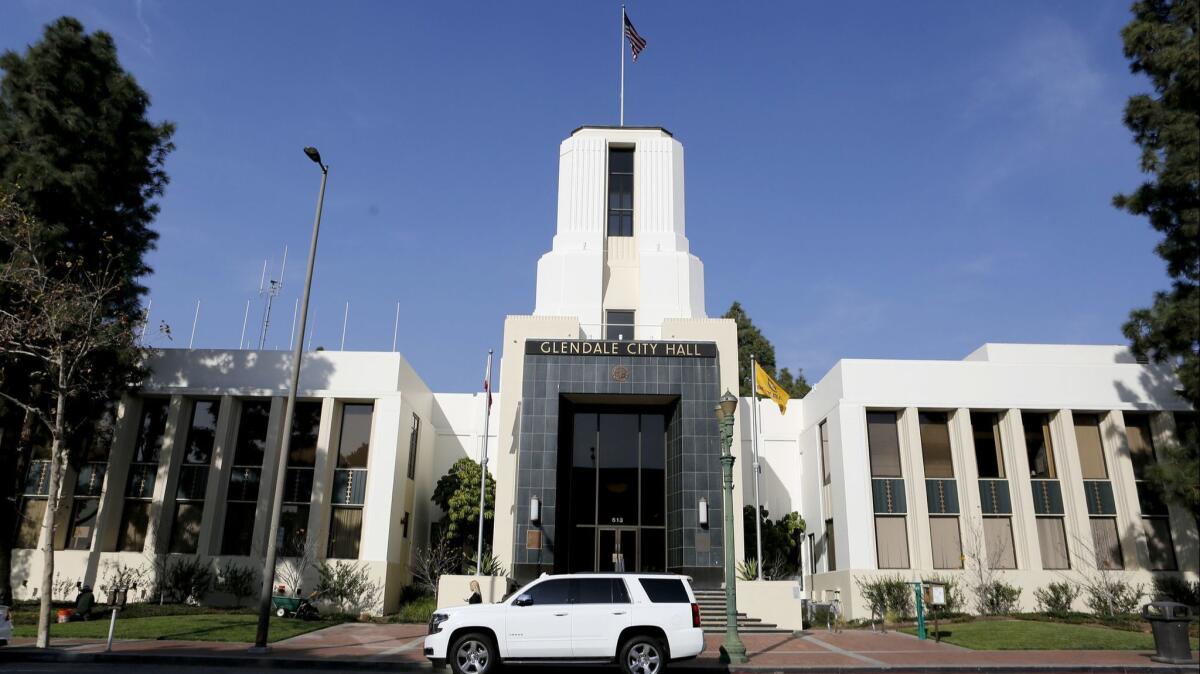Glendale officials allocate nearly $25M for affordable housing in new budget

- Share via
Glendale City Council members earmarked $20 million of the city’s annual budget for affordable housing development this week and also approved an additional $4 million for a rental subsidy program currently in the works.
Those funds will come from a local sales tax increase, known as Measure S, which was approved by Glendale voters in November.
Measure S, which bumped the city’s sales tax rate to 10.25% — the highest it can go under state law — is expected to raise $30 million for the city annually. It went into effect in April.
Glendale City Council members voted 4-0 on Tuesday to approve the more than $938-million budget for the next fiscal year, which will begin July 1.
The remaining Measure S funds will go toward a first-time homebuyer’s initiative, a rental-rights program, a holiday ice rink and an expanded aquatics program, according to a city report.
Councilwoman Paula Devine abstained from voting to approve the budget because it contained a controversial $20-million transfer from the city’s public utility to its General Fund.
In 2014, a government watchdog group sued the city over the transfer and how it calculated its electricity and water rates. Litigation connected to the electricity case is ongoing.
Glendale Mayor Ara Najarian said he would have liked to have seen some of the money used for police and public safety, but added “affordable housing is clearly one of the biggest issues in the city.”
Several potential affordable-housing project sites have already been identified by the council during closed meetings, Najarian said.
Typically, the city provides land to a private developer, which is selected from several that submit proposals for a particular site, he said.
It can take several years for a project to come to fruition, he added.
Prior to the passage of Measure S, Glendale resident Mike Mohill voiced concerns during several council meetings that the money would be used to fund the city’s employee-pension obligations, known as the California Public Employees Retirement System, or CalPERS.
Mohill said in a phone interview on Friday he sees the allocation for affordable housing as a political gambit. While the tax revenue won’t be used for pensions, money from the General Fund will.
Measure S funds are accounted for separately in the city’s General Fund, as per a council decision.
“It’s like you’re moving around deck chairs on the Titanic,” Mohill said. “It’s still the General Fund.”
Pensions cost the city $31 million between 2017 and 2018, with about $3 million offset by employees’ contributions, Glendale’s finance director Bob Eliott said last year.
Glendale officials have taken steps to address the statewide issue, including setting up a pension trust and lowering benefit accruals for employees hired after a state reform law passed in 2012, Elliot said at the time.
Each year, city officials must decide how to allocate Measure S money, and Najarian said he anticipates the amount going toward affordable housing will not stay the same in the future.
“What the [council members] wanted to do was take a big chunk for affordable housing and see if we can get that under control,” he said.
